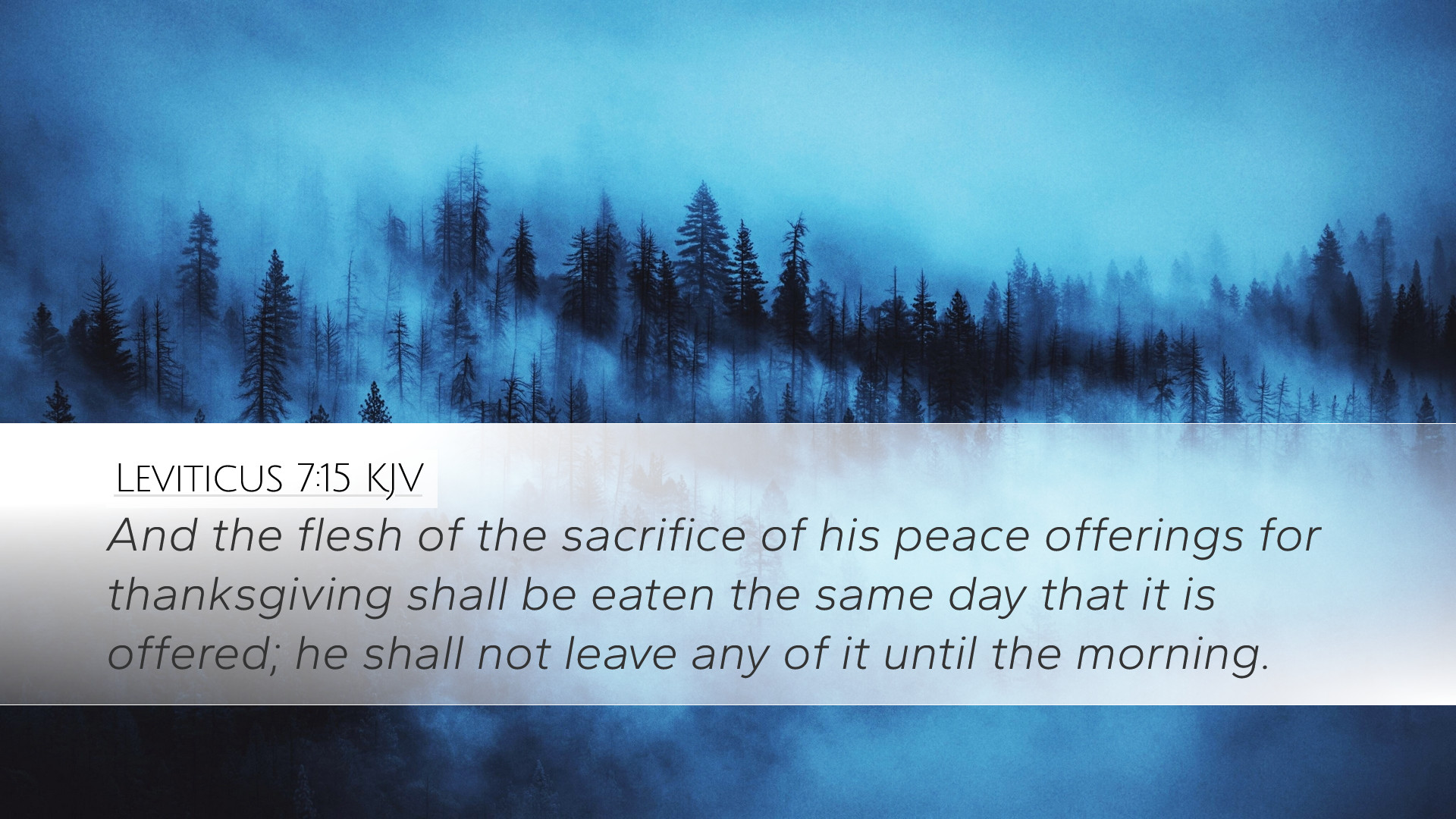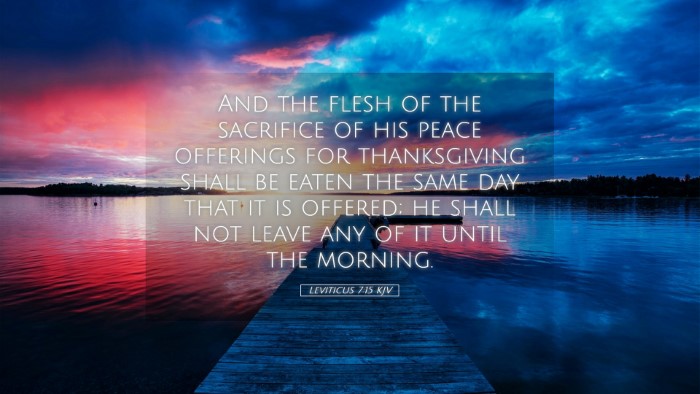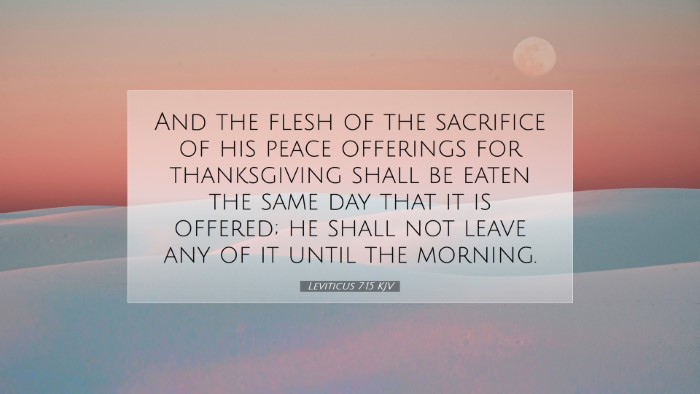Commentary on Leviticus 7:15
Verse Summary: "And the flesh of the sacrifice of his peace offerings for thanksgiving shall be eaten the same day that it is offered; he shall not leave any of it until the morning."
Introduction
The sacrificial system outlined in Leviticus represents a significant aspect of Israelite worship, reflecting God's demands for holiness and the maintenance of communal relationships with Him and among the people. Leviticus 7:15 specifically addresses the peace offerings, particularly those made in thanksgiving. The guidelines provided here showcase God's desire for joy and gratitude to be integral parts of worship.
Analysis of the Verse
1. The Nature of the Peace Offerings
The peace offering, also known as the "sacrifice of wellbeing," reflects a celebratory act of worship (Barnes). Unlike sin offerings or guilt offerings, which addressed specific transgressions, peace offerings emphasized a harmonious relationship with God. These offerings could be made in gratitude or in the context of a fulfilled vow, symbolizing an act of sharing in God's bounty.
2. The Requirement of Same Day Consumption
According to the command in this verse, the flesh of the thanksgiving peace offering must be consumed on the same day it is offered. Adam Clarke explains that this stipulation underscores the immediacy of gratitude and enjoyment in one’s relationship with God. The believer's joy should not be postponed; it must be expressed and shared within the community and family unit promptly, reinforcing unity and gratitude.
3. Community Aspect of Worship
This directive also highlights the communal dimension of worship in ancient Israel. The act of eating together symbolized fellowship—not only with God but also with one's community (Henry). Eating the sacrifice with family and friends fostered relationships, keeping God at the center of their lives and uniting the people in the worship of God.
Theological Significance
The theology embedded in Leviticus 7:15 is multifaceted:
- Thanksgiving and Acknowledgment: The act of offering was a recognition of God’s providence and grace in one’s life. It serves as a reminder that all good gifts come from God (James 1:17).
- Urgency of Worship: The immediate consumption illustrates that worship and gratitude should not be delayed. It prompts believers to respond to God’s goodness without delay or apathy.
- Communal Gratitude: This verse emphasizes that worship is not only an individual act. When one worships, the community is also called to participate in that acknowledgment of God’s goodness.
Practical Implications
For pastors, students, and theologians, the themes of Leviticus 7:15 can be applied in several meaningful ways:
- Encouraging Community Worship: Church leaders should foster environments where communal worship and shared acts of gratitude are prioritized, reflecting the relational nature of the faith.
- Promoting Immediate Gratitude: Believers should be encouraged to express their thankfulness and joy in the Lord without delay, reflecting on God’s current blessings in their lives.
- Teaching on the Importance of Sacrifice: This verse can be used to teach the importance of sacrificial living, where believers are reminded that following Christ involves a recognition of His lordship over all aspects of life.
Conclusion
Leviticus 7:15 calls God’s people to a lifestyle of gratitude that is immediate, experiential, and communal. As we reflect on this verse, it is critical to understand how these ancient practices resonate with contemporary worship life. The peace offering stands as a beautiful reminder that celebration and thanksgiving play a vital role in the believer's relationship with God, inviting all into a deeper awareness of God's blessings and the joyful obligation to respond.


